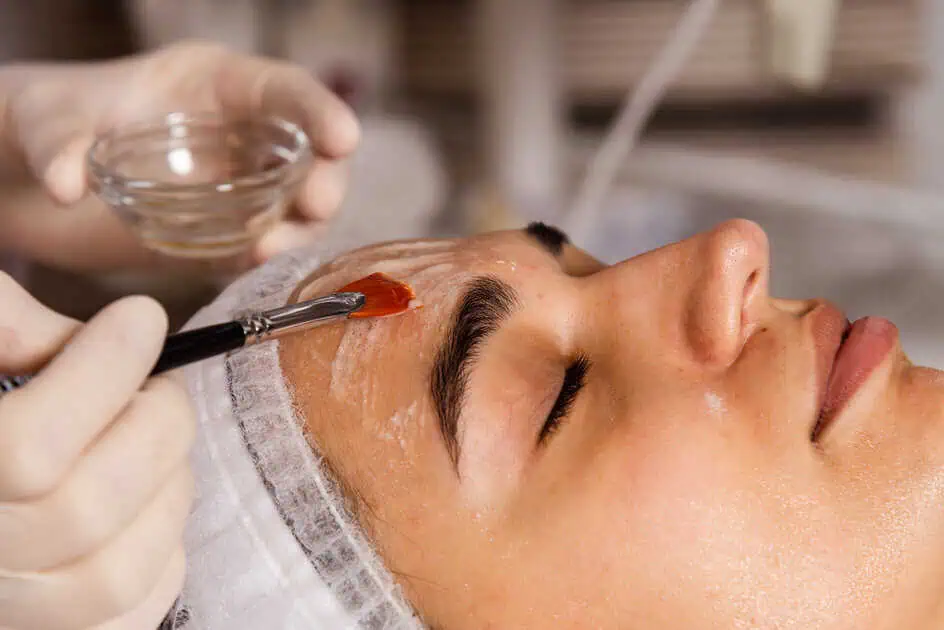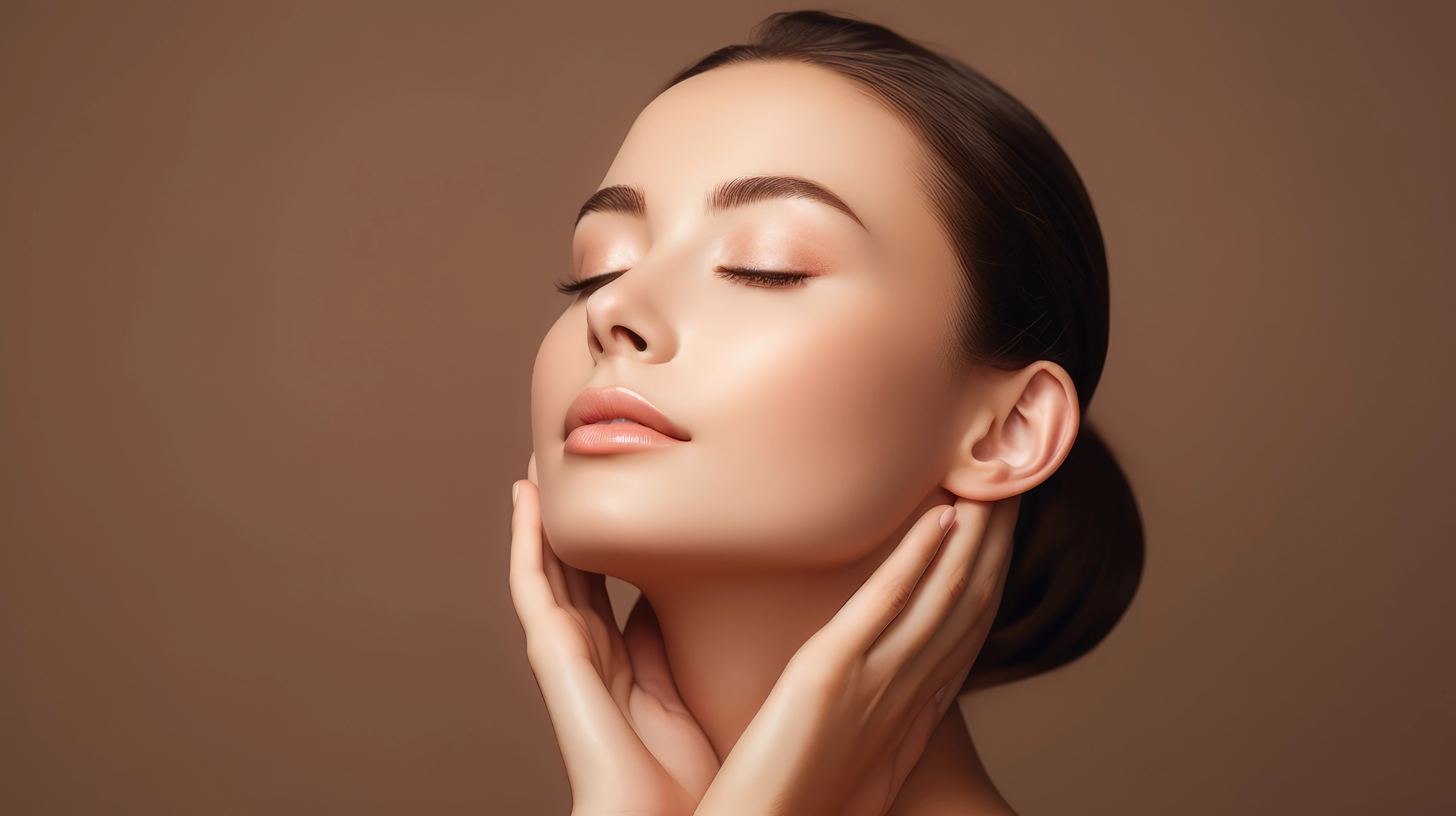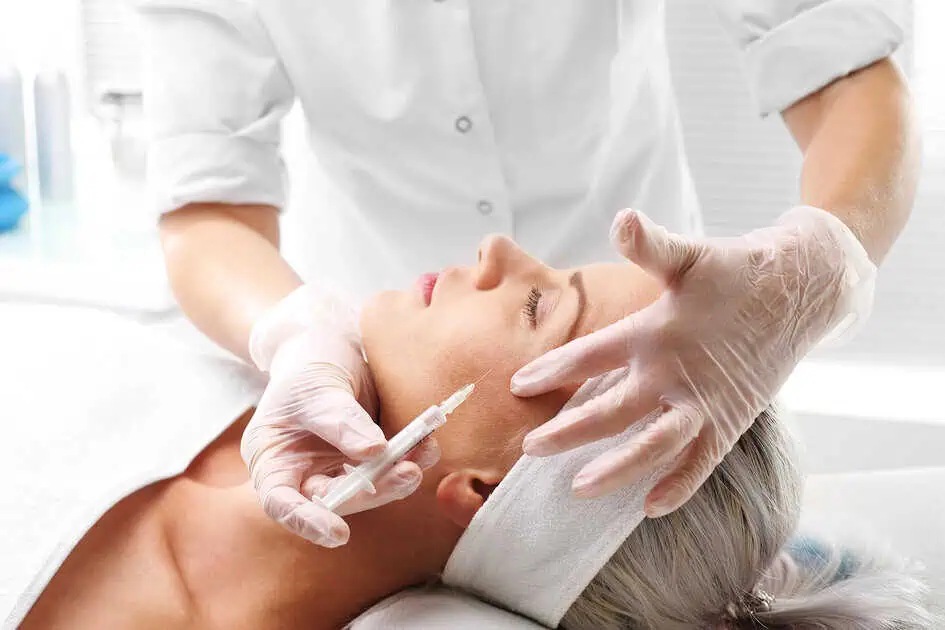Table of Contents
It is not uncommon for people to turn to a variety of cosmetic treatments to achieve radiant, youthful skin. Chemical peels are among the most popular and effective options available to people today in terms of skin care. These treatments can significantly enhance the appearance of your skin by promoting skin rejuvenation, improving the texture of your skin, and addressing various skin concerns.
You have come to the right place if you would like to find out more about what chemical peels can do for you or how they work. You can learn all you need to know about chemical peels and how they can provide you with a new look by reading this guide.
What Are Chemical Peels?
Cosmetic treatments such as chemical peels involve applying a chemical solution to the skin. This solution exfoliates the outer layers of the skin, revealing smoother, healthier skin underneath. There are three types of chemical peels: superficial, medium, and deep, each targeting a different skin issue.
- Superficial Peels: These gentle peels use mild acids, such as alpha-hydroxy acids (AHAs), to exfoliate the outermost layer of skin. They are ideal for improving skin texture and tone, addressing minor blemishes, and enhancing overall radiance.
- Medium Peels: Utilizing trichloroacetic acid (TCA), medium peels penetrate deeper than superficial peels, effectively treating moderate skin concerns like fine lines, acne scars, and uneven pigmentation.
- Deep Peels: These more intensive treatments involve phenol or higher concentrations of TCA, providing significant results for severe skin issues like deep wrinkles, extensive sun damage, and pronounced scars. However, they require longer recovery times and are usually performed under sedation.
The Benefits of Chemical Peels
Chemical peels offer many benefits for those seeking to rejuvenate their skin. Let’s dive deeper into some of the most notable advantages:
Exfoliation and Cell Turnover: Exfoliation is one of the main purposes of chemical peels. Chemical peels promote cell turnover by eliminating the outermost layer of dead skin cells, resulting in a more radiant, youthful complexion. This process is essential for keeping skin healthy because it encourages the development of new, fresh skin cells.
Reduction of Acne Scars: Acne scars can be a lingering reminder of past breakouts for many individuals. Chemical peels can help diminish the appearance of these scars by sloughing off the damaged skin layer and encouraging healthier skin regeneration. The acids in chemical peels can also reduce active acne by unclogging pores and controlling oil production.
Improved Skin Texture: Chemical peels can assist with uneven skin texture, which can be annoying. These procedures smooth out rough areas, reduce the visibility of fine wrinkles, and enhance the texture of the skin by exfoliating the epidermis. A smoother complexion enhances makeup application and boosts confidence.
Brightening Dull Skin: Over time, skin can become dull due to sun exposure, pollution, and the natural aging process. Chemical peels can restore brightness by removing the layer of dead skin cells, contributing to a lackluster appearance. The result is a more vibrant, glowing complexion.
Enhanced Effectiveness of Skincare Products: The skin is primed to absorb skincare products more effectively after a chemical peel. The advantages of serums and moisturizers are maximized when the outer layer of dead skin is removed, allowing for deeper penetration. This increases the efficacy of your everyday skincare regimen.
How Do Chemical Peels Work?
Consultation
It’s crucial to make an appointment with a licensed skincare specialist at Joslin Medical Spa by Thompson Plastic Surgery prior to having a chemical peel. At this visit, they will evaluate your skin type, discuss your problems, and choose the best peel for you. If you have any concerns concerning the process, now is a great opportunity to ask them.
Pre-Treatment Preparation
Your provider may recommend using specific skincare products, such as retinoids, to help your skin acclimate to the treatment in preparation for your peel. Avoiding sun exposure and certain medications that may increase sensitivity are also advised.
The Procedure
During the chemical peel, the provider will cleanse your skin thoroughly before applying the chemical solution. You may feel a tingling or burning sensation during the application, but this typically subsides quickly. The duration of the treatment depends on the type of peel and the area being treated.
Aftercare and Recovery
Post-treatment, your skin may appear red and sensitive, similar to a mild sunburn. Recovery time varies depending on the peel type:
- Superficial Peels: Minimal downtime; some redness may last a few hours to a day.
- Medium Peels: Moderate redness and peeling for several days, with results becoming visible after about a week.
- Deep Peels: Significant redness and peeling for one to two weeks, with dramatic results emerging over time.
Your skincare specialist will provide aftercare recommendations to guarantee the best possible recovery and outcomes.
Ideal Candidates for Chemical Peels
Chemical peels are suitable for various skin types and concerns but may not be ideal for everyone. Individuals with the following conditions should consult their provider before proceeding:
- Active Skin Infections: Conditions like cold sores, warts, or fungal infections can interfere with healing.
- Pregnancy or Nursing: Hormonal changes can affect skin sensitivity and healing.
- Certain Medical Conditions: Skin disorders or sensitivities may warrant caution.
Overall, chemical peels can benefit individuals looking to improve their skin’s appearance, tackle acne scars, or enhance skin texture.
Common Misconceptions About Chemical Peels
Despite their popularity, several myths about chemical peels persist. Let’s debunk a few common misconceptions:
Chemical Peels Are Only for Aging Skin: While chemical peels are excellent for mature skin, they can also benefit younger individuals with acne scars, uneven skin tone, or dullness. Chemical peels cater to various skin concerns across all age groups.
All Chemical Peels Cause Severe Peeling: Not all chemical peels lead to excessive peeling. Superficial peels typically result in minimal to no visible peeling, while medium and deep peels can cause more pronounced shedding. The degree of peeling often correlates with the type of peel used.
Chemical Peels Are Painful: Most patients report mild discomfort during the procedure. Providers often apply a soothing balm or numbing cream to minimize any potential pain. The post-peel sensation varies, with some individuals feeling a slight sting or tightness.
Results and Expectations
Chemical peels have the power to change people’s lives. After the procedure, many people observe an instant improvement in the look of their skin, which continues to improve over the next weeks as the skin repairs and regenerates. Depending on the kind of peel and the specific skin issues, many sessions could be advised to get the best results.
Maintenance
Incorporating a consistent skincare routine is vital to maintaining the benefits of your chemical peel. This should include sun protection, gentle cleansing, and hydrating products. Regular follow-up treatments, such as lighter peels or other skin rejuvenation methods, can help sustain your glowing complexion.
Conclusion
Chemical peels can be a game changer in your skincare journey, offering many benefits that enhance your skin’s appearance and texture. With options available for all skin types and concerns, there’s no reason not to consider this effective treatment at Joslin Medical Spa by Thompson Plastic Surgery. Achieve glowing, flawless skin with our chemical peels—schedule your appointment now!







